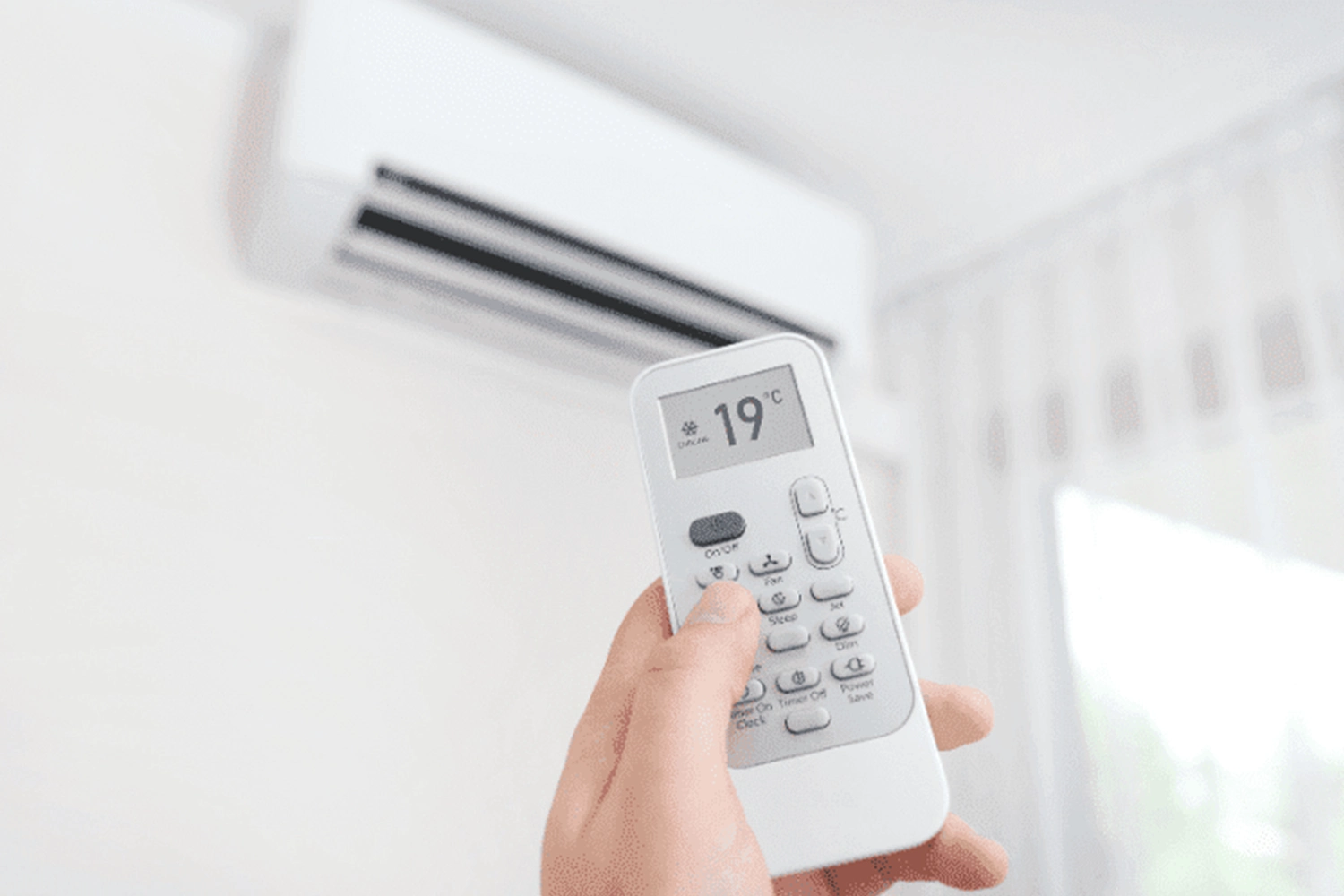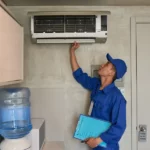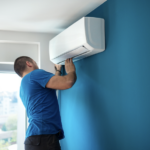The sweltering summer months bring a welcome respite in the form of air conditioning. However, the comfort it provides often comes with a pressing question for homeowners and businesses alike: “How much does air conditioning cost per month?” As energy costs continue to be a significant concern, understanding the financial implications of staying cool is crucial for effective budgeting and resource management.
In this guide, we’ll examine the factors influencing your air conditioning expenses, from the type and efficiency of your AC unit to your usage patterns. Beyond merely identifying cost drivers, we’ll equip you with actionable strategies and insights into optimizing your air conditioning usage to achieve substantial savings on your energy bills.
Factors Influencing Air Conditioning Running Costs
Several key factors influence how much does running AC cost per month. Understanding the following variables empowers you to make informed decisions and lower your energy bills:
Type of Air Conditioner
The type of air conditioner you own plays a significant role in its running costs. Central air conditioning systems, while offering whole-house cooling, tend to consume more energy than smaller units. Window units, portable air conditioners, and ductless mini-split systems are generally more energy-efficient, making them a potentially cost-effective choice for cooling specific areas.
AC Size & Cooling Capacity
Correctly sizing your air conditioner is vital for energy efficiency. An oversized unit will cycle on and off frequently, wasting energy, while an undersized one will struggle to cool your space adequately, leading to longer run times and increased costs. Ensure your AC unit’s cooling capacity, measured in British Thermal Units (BTUs), matches your room or home’s size for optimal performance.
Energy Efficiency Ratings
Energy efficiency ratings provide a standardized way to compare the energy consumption of different air conditioners. For central AC, look for the Seasonal Energy Efficiency Ratio (SEER), while other types use the Energy Efficiency Ratio (EER). Higher ratings indicate greater efficiency and potentially lower operating costs. Consider models with high SEER or EER ratings to maximize energy savings when shopping for a new AC unit.
Electricity Rates
Your local electricity rates directly impact your air conditioning costs. As electricity prices vary across regions and even times of day, it’s essential to be aware of your provider’s rates to estimate your monthly expenses accurately.
Climate and Usage
The climate you live in and your air conditioning usage patterns significantly influence your energy consumption. Hotter climates naturally require more cooling, leading to higher costs. Additionally, the more frequently you use your AC and the lower you set your thermostat, the more energy it will consume.
Age & Maintenance
The age and maintenance status of your air conditioner can also affect its efficiency. Older units may not be as energy-efficient as newer models, and neglecting regular maintenance can lead to decreased performance and increased energy consumption. Proper maintenance, including cleaning or replacing filters and scheduling professional tune-ups, can help your AC unit run more efficiently and lower your energy bills.
Understanding Appliance Energy Consumption: AC vs. Other Appliances
To gain a clearer perspective on how much does air conditioning cost per month, let’s compare its energy usage to that of other common household appliances:
- Refrigerator: Typically consumes around 6 cents worth of electricity per hour.
- Washing machine: Averages approximately 23 cents per hour of operation.
- Dishwasher: Uses roughly 34 cents of electricity per hour.
- Air conditioner: Consumes a notable 50 cents of electricity per hour.
While a refrigerator runs continuously and might accumulate higher annual costs, the air conditioner’s intensive use during peak summer months can easily surpass it. In scorching weather, with an AC unit running up to 8 hours a day, the daily cost can reach $4, translating to a potential $120 monthly expense. This figure significantly outweighs the refrigerator’s estimated monthly cost of $43.
Calculating Air Conditioning Running Costs
Now that we’ve explored the factors influencing air conditioning costs, let’s dive into the practical aspect of calculating those expenses. Although numerous online calculators offer tailored estimates based on your unique AC unit and geographical location, understanding the fundamental formula equips you with the knowledge to make well-informed choices.
The Basic Formula
The fundamental formula for calculating how much does running ac cost is as follows:
(Wattage x Hours Used per Day) / 1000 x Price per kWh = Daily Cost
To break this down:
Wattage: Find the wattage of your air conditioner, usually listed on the unit or in its manual.
Hours Used per Day: Estimate how many hours your AC runs daily.
Price per kWh: Look up your electricity provider’s price per kilowatt-hour (kWh).
By multiplying the wattage by the daily usage hours, you get the daily watt-hours consumed. Dividing this by 1000 converts it to kilowatt-hours (kWh). Finally, multiplying the kWh by your electricity rate gives you the estimated daily cost.
Examples
Let’s consider a few scenarios to illustrate the calculation:
- Scenario 1: A 1500-watt window AC unit running for 8 hours a day, with an electricity rate of $0.15 per kWh.
- Calculation: (1500 watts x 8 hours) / 1000 x $0.15/kWh = $1.80 per day
Scenario 2: A 3500-watt central AC system running for 12 hours a day, with an electricity rate of $0.12 per kWh.
Calculation: (3500 watts x 12 hours) / 1000 x $0.12/kWh = $5.04 per day
Tips for Lowering Air Conditioning Costs
While the necessity of air conditioning for comfort is undeniable, it doesn’t have to result in excessive energy bills. Proactively adopting strategic measures can keep your expenses to a minimum while maintaining a comfortable living or working environment.
Integrate Smart Technology
Investing in a programmable or smart thermostat can be a game-changer. These intelligent devices allow you to schedule temperature adjustments based on your daily routine and preferences. By automatically raising the temperature when you’re away and lowering it before you return, you can significantly reduce energy waste and save money.
Regular Maintenance
Proper maintenance is key to ensuring your air conditioner operates efficiently. Regularly clean or replace air filters to prevent airflow restrictions, and schedule professional tune-ups with a reliable HVAC company to keep your system running smoothly. A well-maintained AC unit can use up to 15% less energy than a neglected one, translating to substantial savings over time.
Upgrading to Energy-Efficient Models
Consider upgrading to a newer, energy-efficient model if your air conditioner is old or inefficient. Look for units with high SEER or EER ratings, as these consume less energy for the same cooling output. In 2024, tax credits or rebates may also be available for high-efficiency AC units, making the upgrade even more appealing.
Supplemental Cooling
Explore supplemental cooling options to reduce your reliance on air conditioning. Ceiling fans, portable fans, and dehumidifiers can create a more comfortable environment, allowing you to raise your thermostat a few degrees and save energy. Additionally, shading your windows with blinds, curtains, or awnings can block out sunlight and prevent heat buildup in your home.
Time-of-Use Electricity Rates
If your electricity provider offers time-of-use rates, you can leverage these to lower your cooling costs. By shifting your air conditioning usage to off-peak hours when electricity rates are lower, you can potentially save money on your energy bill.
Key Takeaways: How Much Does Air Conditioning Cost Per Month
Mastering air conditioning costs doesn’t have to be overwhelming. Armed with insights into the factors driving expenses and practical strategies for optimization, you’re equipped to make informed choices and achieve both comfort and savings.
Remember, a comfortable living space can be both refreshing and affordable. Implementing the tips we’ve explored can help you strike that ideal balance.
Should you need personalized assistance or expert guidance in maximizing your AC efficiency, our team is ready to help. Reach out today, and let’s create a cooler, more cost-effective environment together.






